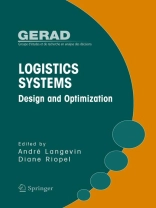In a context of global competition, the optimization of logistics systems is inescapable. Logistics Systems: Design and Optimization falls within this perspective and presents twelve chapters that well illustrate the variety and the complexity of logistics activities. Each chapter is written by recognized researchers who have been commissioned to survey a specific topic or emerging area of logistics. The first chapter, by Riopel, Langevin, and Campbell, develops a framework for the entire book. It classifies logistics decisions and highlights the relevant linkages to logistics decisions. The intricacy of these linkages demonstrates how thoroughly the decisions are interrelated and underscores the complexity of managing logistics activities. Each of the chapters focus on quantitative methods for the design and optimization of logistics systems.
Jadual kandungan
The Network of Logistics Decisions.- Facility Location in Supply Chain Design.- Distribution Centres in Supply Chain Operations.- Operational Research Methods for Efficient Warehousing.- Models and Methods for Facilities Layout Design from an Applicability to Real-World Perspective.- The Design, Planning, and Optimization of Reverse Logistics Networks.- Models and Methods for Operations in Port Container Terminals.- Strategic Network Design for Motor Carriers.- New Heuristics for the Vehicle Routing Problem.- Routing Propane Deliveries.- Synchronized Production-Distribution Planning in the Pulp and Paper Industry.- Production Planning Optimization Modeling in Demand and Supply Chains of High-Value Consumer Products.












